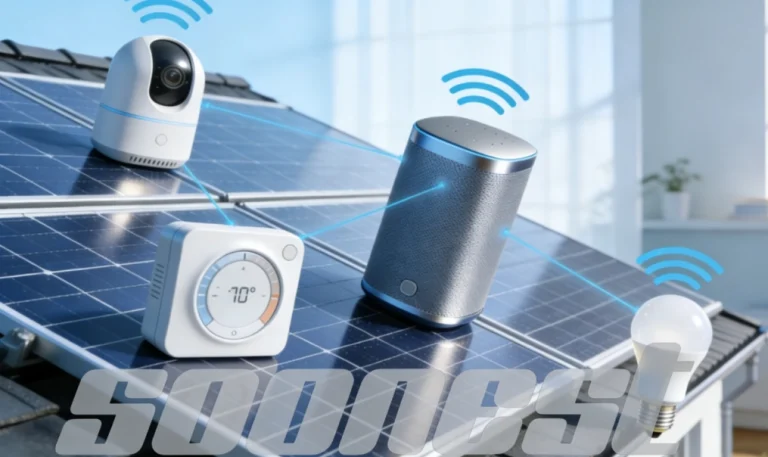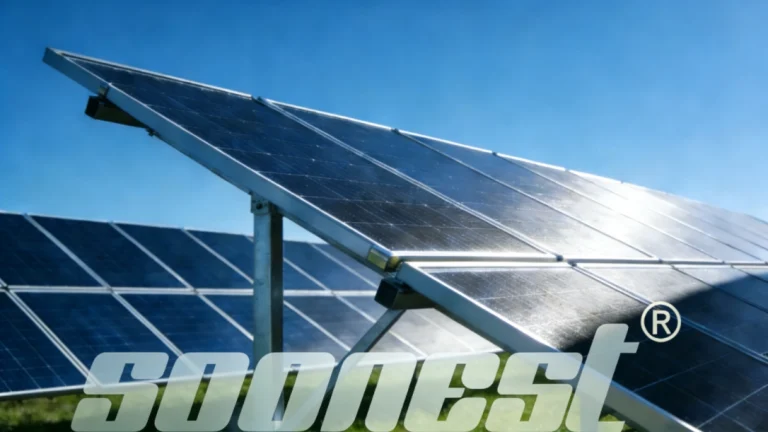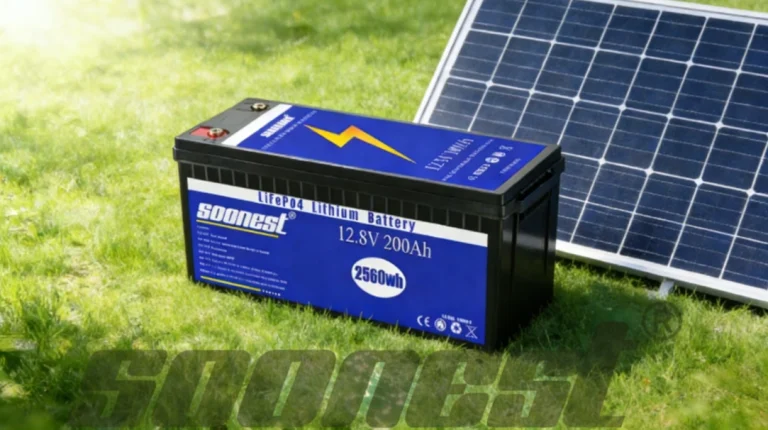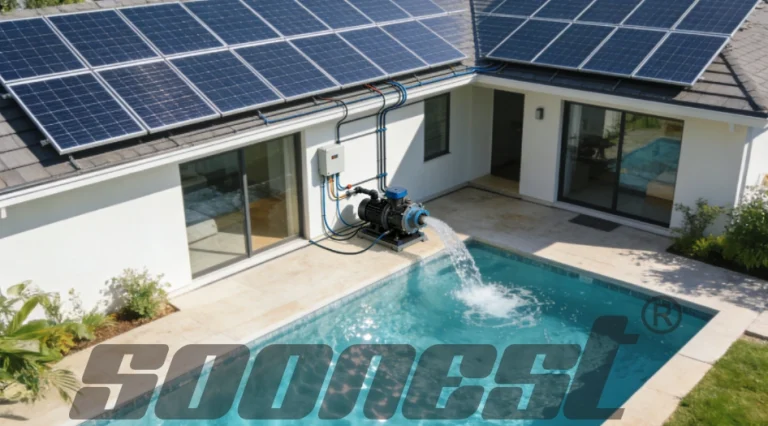Выбор лучшая литиевая батарея 48 В для солнечной энергии Это большая работа. Выберите батареи LiFePO4, потому что они супер безопасны, длительные (более 6000 циклов при 80% министерства обороны) и хорошо работают (более 95% эффективности). Посмотрите на такие вещи, как сколько раз вы можете использовать его, сколько энергии вы можете извлечь (DoD), какую погоду он обрабатывает и имеет ли он умную BMS, чтобы поддерживать сбалансированность и безопасность. Скорее всего Это надежный бренд. Они создают легкие, простые в использовании батареи 48 В, такие как 100 Ач или 200 Ач, с потрясающим BMS, который отслеживает вещи в режиме реального времени и идеально подходит к инверторам. Их батареи отлично подходят для домов или бизнеса, и они поставляются с 5-летней гарантией. Установите их правильно, убедитесь, что воздух течет вокруг них, и приведите их в соответствие с вашими энергетическими потребностями для лучших результатов и долгого срока службы. Скорее всего батареи отлично работают в реальном мире, поэтому они отлично подходят для растущих, твердых систем хранения солнечных батарей.
Почему стоит использовать 48-вольтные системы для хранения солнечной энергии?
Выбор правильного напряжения для вашего солнечного хранилища очень важен. 48В настройка потрясающа, потому что она безопасна и хорошо работает. Многие люди используют его для домов и бизнеса. Более высокое напряжение, как 48 В, означает меньше потоков тока. Это сокращает потерю энергии в проводах и предотвращает слишком горячие вещи. Таким образом, ваша система работает лучше без беспорядков, которые поставляются с сверхвысокими напряжениями.
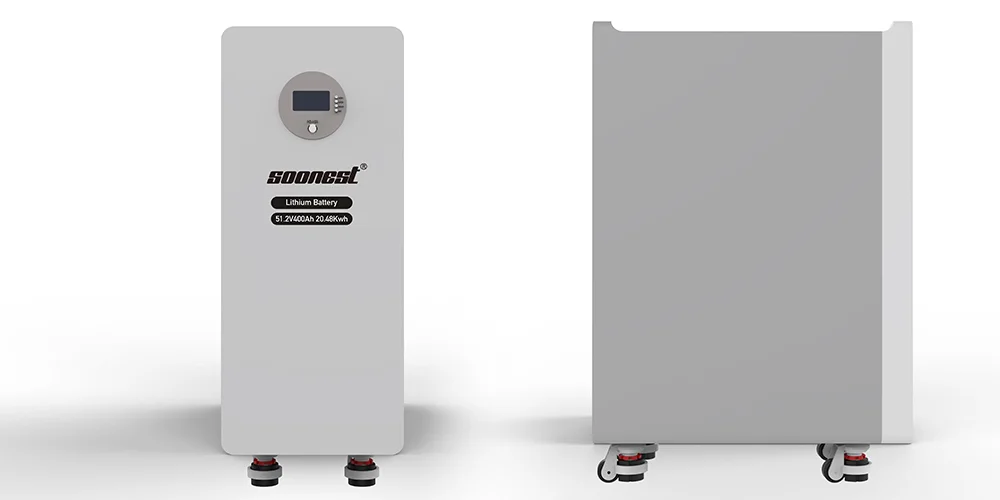
Для солнечного, 48В батареи легко подключитесь к большинству новых инверторов и контроллеров. Они дают постоянное питание таким вещам, как бытовая техника или деловые машины. Кроме того, они идеально подходят для гибридных солнечных установок. Это означает, что вы можете использовать их, если вы подключены к сети, вне сети или нуждаетесь в резервном копии, когда отключается электричество.
Что делает литий-железный фосфат (LiFePO4) батареи идеальными для солнечных?
Батареи LiFePO4 являются лучшим выбором для солнечных, потому что они остаются прохладными, вечными и безопасными. Старые свинцово-кислотные батареи быстро износятся, если вы их часто используете. Но батареи LiFePO4 продолжают работать практически без потерь.
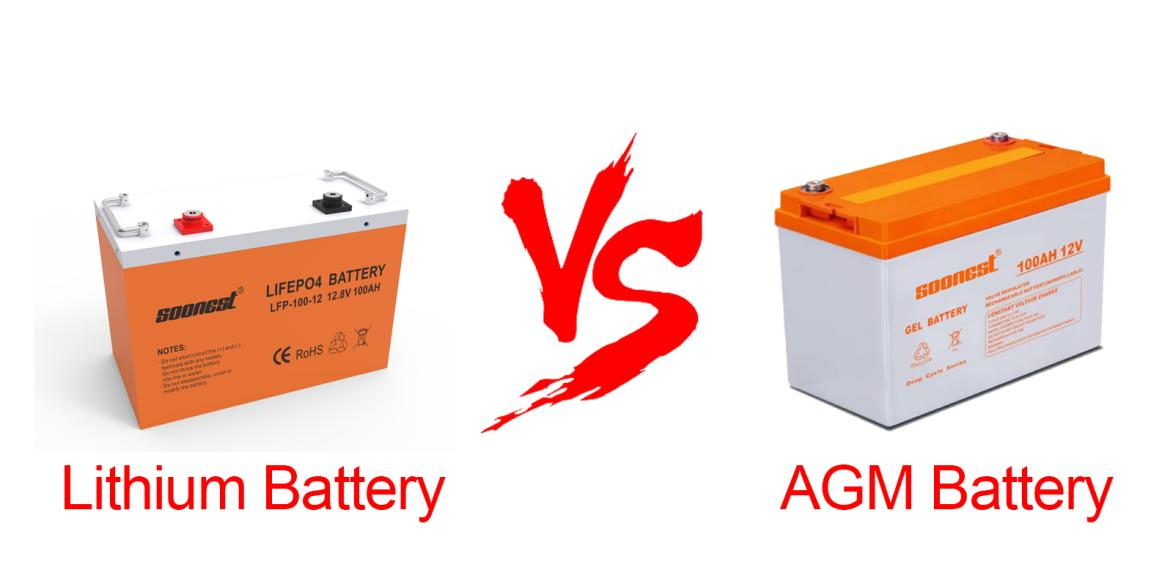
Они могут обрабатывать более 6000 циклов при 80% министерства обороны. Это намного лучше, чем другие виды, и это экономит вам деньги со временем. Кроме того, они дают стабильную мощность, даже когда они тяжело работают. Это отлично подходит для деликатных гаджетов или инверторов.
Они изготовлены из безопасных материалов и не перегреваются легко. Это делает их одним из самых безопасных вариантов хранения энергии в доме.
Какие показатели производительности наиболее важны в солнечных приложениях?
Чтобы найти лучшая литиевая батарея 48 В для солнечной энергииПроверьте, что делает его надежным и эффективным:
- Жизнь циклаПоказывает, сколько раз вы можете заряжать и использовать батарею, прежде чем она ослабнет.
- Глубина разряда (DOD)Скажите, сколько энергии вы можете безопасно использовать от батареи.
- ЭффективностьАккумуляторы LiFePO4 теряют менее 5% энергии при зарядке или использовании.
- Диапазон температурыОн должен отлично работать в горячих или холодных местах.
- КоммуникацииТакие вещи, как CAN или RS-485, позволяют батарее разговаривать с вашим инвертором для умной командной работы.
Эти вещи очень важны для создания солнечных систем, которые продолжаются более десяти лет.
Как оценить правильную батарею LiFePO4 48 В?
Вы получаете достаточно полезной энергии от вашей батареи’ с потенциалом?
Аккумуляторы измеряются в ампер-часах (Ач). Но сколько энергии вы можете использовать зависит от размера и Министерства обороны. Например, батарея 48 В 100 Ач имеет мощность 4,8 кВтч. Если вы можете использовать только 80% (DoD), вы получаете около 3,84 кВтч каждый цикл. Всегда проверяйте, что говорит производитель о полезной энергии, а не только об общей сумме.
Насколько важны оценки глубины разряда и жизненный цикл?
Большое министерство обороны означает, что вы можете использовать больше энергии, не повреждая батареи. Лучшие отдают 6000 циклов 80% министерства обороны. Это идеально подходит для использования солнечной энергии каждый день и экономит вам деньги в долгосрочной перспективе.
Какую роль играет эффективность в производстве солнечной системы?
Супервысокая эффективность — более 95% — означает, что вы не теряете много энергии при зарядке или использовании батареи. Это очень важно, когда ваши солнечные панели не всегда дают стабильную энергию. Вы хотите, чтобы каждый кусок энергии считался.
Почему интеллектуальная BMS не поддается переговорам?
Умный BMS отслеживает такие вещи, как температура, напряжение, ток и насколько полна батарея. Он останавливает перезарядку или слишком много разрядки батареи. Он также поддерживает баланс клеток, поэтому батарея длится дольше. Некоторые даже позволяют проверять его на телефоне с помощью Bluetooth или Wi-Fi.
Какие сертификаты безопасности следует искать?
Убедитесь, что батарея имеет маркировки UL1973, UN38.3, CE или IEC62619. Они доказывают, что они безопасны для электричества, тепла и прочности. Это очень важно, если вы размещаете его внутри или рядом с местом, где люди сидят.
Будет ли это работать беспрепятственно с вашим инвертором или контроллером?
Проверьте, использует ли он CANBus или RS485/RS232 для подключения к вашей системе. Это помогает батарее делиться информацией с другими частями. Это улучшает зарядку и рано выявляет проблемы.
Какие бренды выделяются на рынке и почему?
Как ведущие бренды сравниваются по качеству строительства и инновациям в дизайне?
Топ-бренды блестят, потому что они строят аккуратно и используют умные дизайны. Они делают корпусы, которые позволяют потоку воздуха или добавляют системы, чтобы удержать тепло подальше. Это помогает батареям длиться дольше, когда они тяжело работают.
Поддержание производительности в реальных условиях эксплуатации
Лабораторные тесты крутые, но реальная жизнь важнее. Лучшие батареи продолжают работать хорошо, даже если солнце частично заблокировано или потребности в электроэнергии сильно меняются, как в домах.
Какой вид гарантийной поддержки они предлагают?
Совершенная гарантия показывает, что производитель верит в свой продукт. Ведущие бренды дают до пяти лет покрытия для проблем со строительством или если батарея не работает так, как они сказали.
Кто быстрее и почему им доверяют солнечные специалисты по всему миру?
Если вы ищете надежный, умный выбор для хранения энергии, Скорее всего Имя нужно знать. Они тратили годы на создание потрясающих литиевых батарей для возобновляемых источников энергии. Вот почему солнечные профессионалы по всему миру доверяют им.
Скорее всегобатареи LiFePO4 легкие, но упаковка удар, идеально подходит для больших нагрузок инвертора. Их интеллектуальная BMS обеспечивает безопасность и позволяет проверять батарею удаленно. Это поможет вам решить проблемы, прежде чем они станут большими.
Независимо от того, строите ли вы огромную бизнес-систему или модернизируете энергетическую настройку вашего дома, Скорее всего дает вам гибкий выбор с стабильной производительностью. Их пятилетняя гарантия показывает, что вы можете рассчитывать на их качество.
Какие продукты лучше всего подходят для солнечного использования?
Что делает самый быстрый модуль 48V 100Ah идеальным для домовладельцев?
В Скорее всего 48V 100Ah LiFePO4 аккумуляторный модуль дает около 5kWh полезной энергии с эффективностью более 95%. Он достаточно мал, чтобы прилепиться к стене, но достаточно сильный для ежедневного использования с солнечными панелями и гибридными инверторами.
Его легкий дизайн отлично подходит для домов без сети или кабин, где пространство плотно. И его длительный цикл жизни означает, что он продолжает работать хорошо в течение многих лет.
Как устанавливаемая на стойке модель 200Ah поддерживает более крупные установки?
Для больших установок, требующих много места хранения, конструкция стойки этой модели позволяет легко добавлять больше единиц. Он использует CAN или RS-485 для синхронизации с изысканными инверторами для микросетей или заводов.
Выберите настенные блоки ESS со встроенными инверторами
Скорее всегоВсё-в-одном настенном устройстве ESS сочетает литиевое хранение с гибридным инвертором в прочном корпусе IP55. Это отлично подходит для тяжелых мест. Вы можете проверить их с помощью Wi-Fi или Bluetooth, и они переключаются между сетевым и внесетевым режимами самостоятельно. Это идеально подходит для домов, которые хотят оставаться свободными от взлетов и падений энергетической компании.
Что нужно знать, прежде чем установить батареи в систему?
Экологические условия, влияющие на успех установки
Убедитесь, что воздух движется вокруг корпуса батареи, чтобы он не стал слишком горячим. Не ставьте его на прямое солнце, если он не имеет защиту IP. Скорее всего батареи прочные, но прохладное, стабильное место работает лучше всего.
Как следует настроить проводку во время интеграции системы?
Придержитесь Скорее всегоправила для размера провода на основе того, насколько далеко инвертор или контроллер. Используйте правильные выключатели для безопасной обработки внезапных пиков мощности или шортов.
Советы по техническому обслуживанию: Дополнительно продлить срок службы батареи
Часто смотрите на приложение батареи, чтобы проверить, равномерны ли все клетки. Используйте предупреждения для раннего выявления проблем. Иногда очищайте соединения и не полностью разрушайте батарею, если это не для специальной проверки.
Как можно оптимизировать производительность, используя эти батареи эффективно?
Могут ли профили нагрузки более тесно соответствовать спецификациям батареи?
Да! Использование Скорее всегоприложение BMS, чтобы увидеть, как вы используете энергию. Умный баланс не позволяет батарее работать слишком сильно во время напряженного времени. Это держит его здоровым и работает дольше.
Как мониторинг помогает избежать простоев с помощью прогнозных данных?
Живые данные показывают, что-то не так, например, неравномерные клетки или слишком много тепла. Проверка вдали позволяет исправить вещи, прежде чем они сломаются. Это очень удобно для управления множеством систем.
Выполняется ли параллельная конфигурация без ущерба для стабильности?
Совершенно! Скорее всего батареи могут соединяться параллельно и оставаться твердыми. Умная BMS использует CANBus, чтобы все работало вместе. Это позволяет вам безопасно развивать свою систему и сохранять ее эффективностью.
Часто задаваемые вопросы
В: Могу ли я смешивать различные емкости батарей в одной системе?
А: Лучше использовать один и тот же размер в каждой группе. Это помогает BMS справляться с зарядкой и использованием энергии равномерно во всех батареях.
В: Нужно ли мне дополнительное оборудование для охлаждения при установке этих батарей в помещении?
А: Не всегда. Скорее всего батареи имеют встроенное охлаждение, но убедитесь, что воздух может течь вокруг них, особенно в небольших пространствах без кондиционера.
Вопрос: Будут ли эти батареи по-прежнему работать эффективно зимой?
А: Да! Скорее всего Батареи LiFePO4 остаются прочными в холодную погоду. Их специальная конструкция поддерживает стабильность электроэнергии, даже когда снаружи замерзает.

